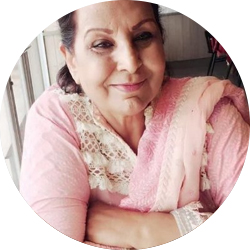Hi readers! This blog was the first of this series but then I decided to hold this till I share with you, what the other religions think about science?
Since you have already gone through and liked them so, finally here it is and the next two will also be on this subject before the series ends.
Dear readers, being Muslim, we all believe that:
A true Muslim never lose hope or be sad, and never underestimate the power of Dua. He believes that:
- There is only God who makes impossible possible,
- If he call Allah, Allah will respond,
- There is no god, but God and that Prophet Muhammad (PBUH) is the messenger of God,
- Prophet Muhammad (PBUH) said, “Verily (truly) Allah has written Ihsan (a matter of taking one’s inner faith “IMAN” and showing it in both deeds and actions, a sense of social responsibility borne from religious convictions) upon all,
- Monotheism (existence of only one deity: the God) is the central dogma of Islam,
- All the Prophets sent by God to humanity shared the same central message of monotheism,
- Life and death are given by God. The absolute prohibition of taking life (If a law or someone in authority prohibits something, they outlawed it or make it illegal) is stated in the Qur’an, Surah 4:29 which states:
“Do not kill yourselves. Surely, Allah is the Most Merciful to you.” Life is sacred, and a gift from God; and it is only God, and not the human beings, who has the right to take it back,
- Allah is the Creator, the Inventor, the Fashioner (the one who fashions, forms, or gives shape to anything),
- To him belong the best names,
- Whatever is in the heavens and on the earth is exalting (held him in the highest position) him and he is the Exalted in Might and Wisdom,
- Ayat al-Kursi: the most powerful and the greatest verse of Qur’an according to hadith is one of the most accepted conformity of Exaltation because when it is recited, the greatness of God is believed to be confirmed.
Dear readers, this is the crux of being a Muslim. Now let’s see what the world think about Muslims with reference to science and Islam,
Islam as monotheistic religion emerged in the seventh century, following a series of revelations (non-Muslim use the word Purported revelation which I will not use for good reason) to the prophet Muhammad PBUH. The term “Islam” also represent caliphates and empires, which were founded by Muslim rulers from the seventh century onward, including the Umayyad, Abbasid, and the Ottoman caliphates. Islam represent a culture which flourished within this political and religious context with its own philosophical and scientific traditions.
The defining characteristic of Islam is belief in one God (Allāh), who communicates through prophets, including Adam, Abraham, and Muhammad PBUH. Allāh’s revelations to Muhammad PBUH are recorded in the Qurʾān: the central religious text for Muslim. Next to the Qurʾān is the ḥadīth: an important source of jurisprudence and theology and an oral corpus of attested sayings, actions, and tacit approvals of the prophet Muhammad PBUH. The two major branches of Islam, Sunni and Shia, are based on a dispute over the succession of Prophet Muḥammad PBUH.
As the second largest religion in the world, Islam shows a wide variety of beliefs. Core creedal views include the oneness of God (tawḥīd): the view that there is only one undivided God who created and sustains the universe, prophetic revelations (in particular to Muḥammad PBUH), and a life after death. Beyond this, Muslims disagree on a number of doctrinal issues.
So dear readers, this is almost the same as described above as core characteristics of a Muslim.
The relationship between Islam and science is complex. Most of the Muslim countries despite being enjoying high urbanization and technological development still seriously lag countries like Japan, China and others outside the Muslim world in common metrics of scientific research comprising publications in peer reviewed international journals and number of citations per scientists. Some Muslims hold pseudoscientific ideas, some of which they shares with Christianity such as Old Earth creationism, whereas others are specific to Islam such as the recreation of human bodies from the tailbone on the day of resurrection, and the superiority of prayers in treating lower-back pain instead of conventional methods. These are not a pseudoscientific believes (Pl read the following Qur’anic verses):
ALLAH SWT stated in many verses of the Qur’an that:
- Resurrection (restoring a dead person to life) will be easy for HIM as HE created them the first time.
- And it is HE who begins creation; then HE repeats it, and that is easier for Him.
- To HIM belongs the highest attribute in the heavens and earth.
- And HE is the Exalted in Might, and wisdom (30:27).
- Have they not considered how ALLAH begins creation and then repeats it?
- Indeed that, for ALLAH, is easy. (29:19).
- Your creation and your resurrection will not be but as that of a single soul. (31:28).
- Is it not HE who created the heavens and the earth Able to create the likes of them?
- Yes, and HE is the Knowing Creator. (36:81).
- His command is only when HE intends a thing that HE says to it, “Be” (Kun) and it becomes (faya koon).(36:82).
Prophet Muhammad PBUH stated a miracle concerning resurrection, and scientists are now discovering only some of its aspects. Prophet Muhammad PBUH mentioned that the coccyx (tail bone) which is the last bone in the vertebral column, is what humans will be resurrected from on the day of Judgment and the Prophet PBUH also mentioned the superiority of prayers in treating lower-back pain instead of conventional methods. He stated that this part does not decay in the earth. Abu Huraira, a companion of the Prophet, narrated that, “ALLAH’s Apostle/disciple (advocate) said, ‘Between the two sounds of the trumpet (Arabic: ʾIsrāʾfīl; or Israfel or the angel who blows the trumpet to signal Qiyamah: the Day of Judgment in Islam), there will be forty (twoscore- being ten more than thirty. 40, forty, Xl. I believe it is 40 seconds. Pl, correct me if somebody knows exactly what forty means).
Abu Huraira further added. “Then ALLAH will send (special) water and then the dead bodies will grow like vegetation grows.
There is nothing of the human body that does not decay except one Bone; that is the Bone at the end of the coccyx of which the human body will be recreated. The Prophet PBUH said “There is a bone in the Son of Adam that the earth will never eat. It is the coccyx.”
Having said all this, the contemporary lack of scientific prominence in Muslim is extraordinary because the Islamic world used to be far better than European cultures/countries in the range and quality of its scientific knowledge between ninth and the fifteenth century, excelling in the fields of mathematics (algebra, geometry, and trigonometry in particular), astronomy (seriously considering, but not adopting, heliocentrism: the astronomical model in which the Earth and the planets revolve around the Sun at the center of the universe. Historically, heliocentrism was opposed to geocentrism, which placed the Earth at the center), optics, and medicine. These domains of knowledge are commonly referred to as “Arabic sciences” to distinguish them from the pursuits of science that arose in the west. Arabic science is an imperfect term as many of the practitioners were not speakers of Arabic, hence the term “science in the Islamic world” was considered more accurate.
Many scientists in the Islamic world were polymaths (individual whose knowledge spans a substantial number of subjects, known to draw on complex bodies of knowledge to solve specific problems.), for example,
- Ibn Sīnā (Avicenna, 980–1037) is commonly regarded as one of the most significant innovators, in philosophy, medicine and astronomy. His Canon of Medicine: a medical encyclopedia, was a standard textbook for universities across Europe and remain so for centuries even after his death.
- Al-Fārābī (ca. 872–ca. 950): a political philosopher from Damascus, is famous for his music theory, science, and mathematics,
- Omar Khayyam (1048–1131) got fame in fields of poetry, astronomy, geography, and mineralogy, and
- The Andalusian Ibn Rušd (1126–1198) also known as Averroes, who argued that philosophy was permissible in Islam and even compulsory among certain elites and that theological text should be interpreted symbolically if it appeared to contradict conclusions reached by reason and philosophy. Therefore, it is not surprising that he was prolific and encyclopedic author. Ibn Rushd’s writings spread more than 20,000 pages, mostly dealing with the philosophy, medicine, logic and jurisprudence. He wrote 20 books on medicine, physics, astronomy, psychology, jurisprudence, music, and geography, next only to developing a Greek-inspired philosophical theology.
A major motivation for science in Islamic world was the patronage of the Abbasid caliphate (758–1258), in Baghdad. Early Abbasid rulers, comprising Harun al-Rashid (ruled 786–809) and his successor Abū Jaʿfar Abdullāh al-Ma’mūn (ruled 813–833), were significant patrons of science. Harun al-Rashid founded the Bayt al-Hikma (House of Wisdom), that was largely based on translations into Arabic, of major works by Aristotle, Galen, and many Persian and Indian scholars. Bayt al-Hikma was multicultural in outlook employing astronomers, mathematicians, and physicians including Indians and Nestorian (Christian) astronomers.
Public libraries attached to the mosques throughout the Islamic world provided access to vast accumulation of knowledge which spread Islam, Greek philosophy, and science. The use of a common language (Arabic), the common religious and political institutions, and the flourishing trade relations encouraged the spread of scientific ideas throughout the Islamic world. This spread of knowledge was informal that was through communication between like-minded people and also formal, e.g., in hospitals where students learned about medicine in a practical setup established for beginners, in astronomical observatories, and in academies.
The fall of the Abbasid caliphate appeared a big disappointment for science in the Islamic world, but why it ultimately deteriorated, and why it did not flourish analogously to the scientific revolution in Western Europe? remained a question which I will try to answer in the forthcoming blogs however, philosophy and philosophical theology remained continue to flourish even after the Abbasid caliphate fell which means only the modern sciences that were flourishing in Europe deteriorated in Islamic world.
That’s all for now dear readers. It is heartening to note that my blogs on religion and science are more read than those on pure science. Please like them and share them in your circle
See you next week. Bye.





